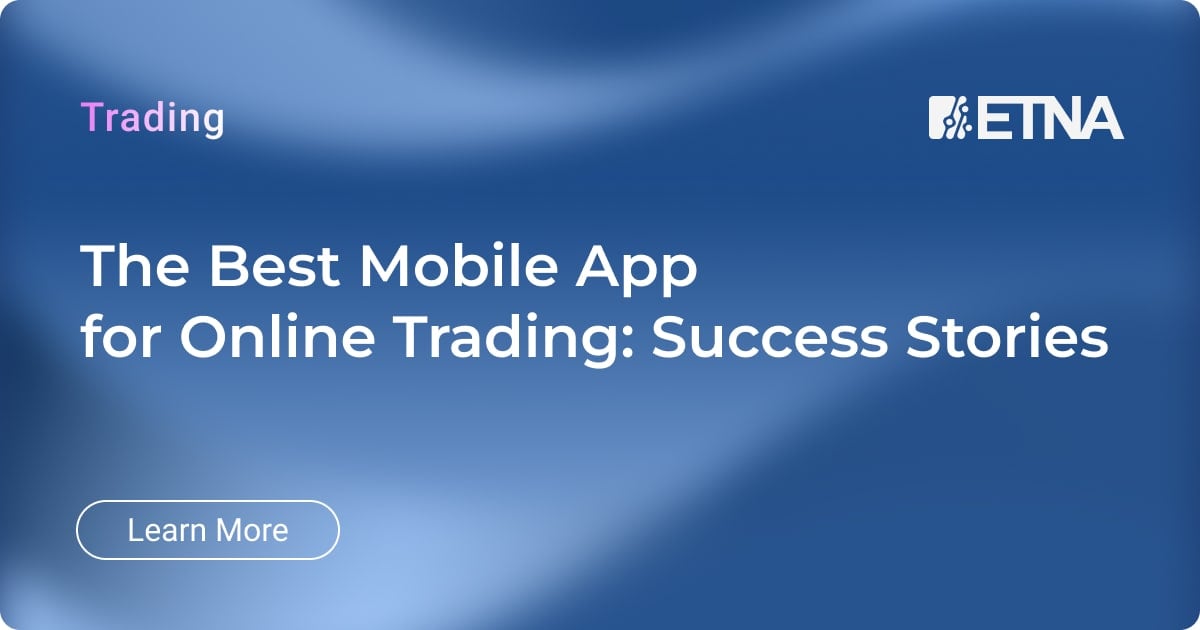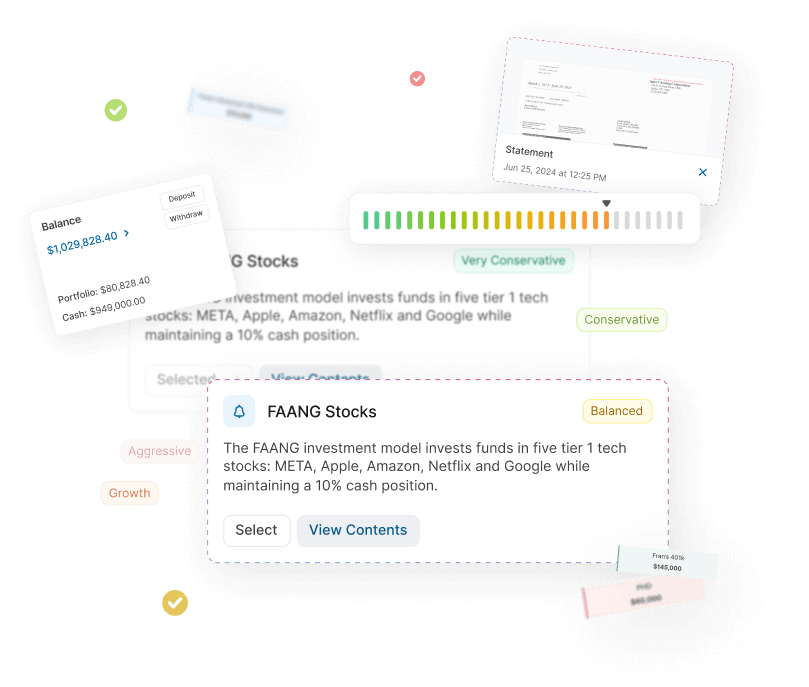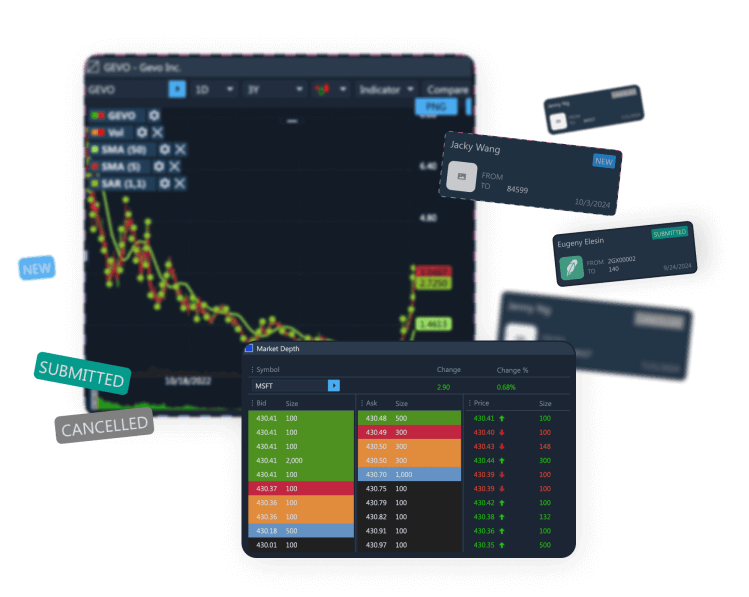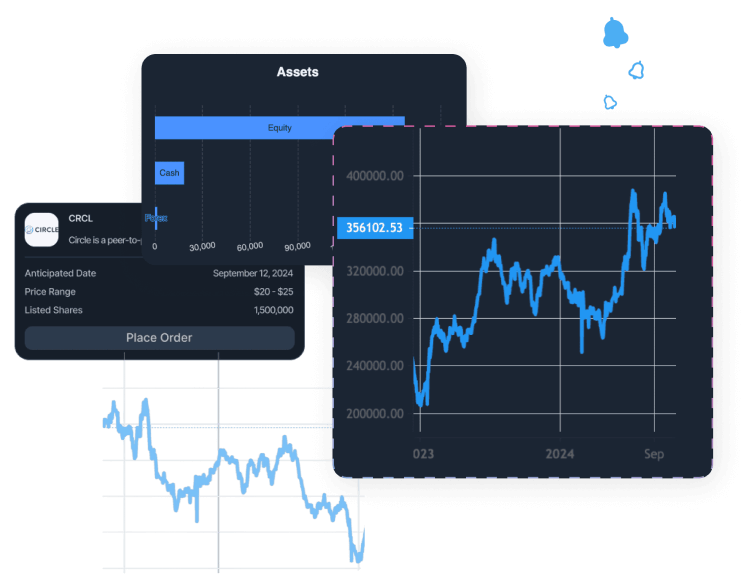
Mobile trading has evolved from a convenience feature to the cornerstone of modern brokerage operations. In 2025, with over 130 million people worldwide using mobile apps to trade stocks, broker-dealers and fintech firms recognize that delivering exceptional mobile experiences is no longer optional it’s fundamental to business growth. The stock trading app market has exploded from $13.6 billion in 2024 to an estimated $23.9 billion in 2025, with projections reaching $161.8 billion by 2035, representing a remarkable compound annual growth rate of 21.1%. Mobile trading now accounts for 44% of e-brokerage activity, and retail investors who comprise 55-71% of the market increasingly demand sophisticated yet accessible mobile experiences.
For new traders seeking the best app to learn trading for beginners, this transformation offers unprecedented opportunities to access professional-grade tools, educational resources, and real-time market data directly from their smartphones. Meanwhile, broker-dealers leveraging mobile-first strategies report customer asset growth of 45-64% year-over-year and conversion rates 157% higher than mobile web alternatives. The message is clear: mobile apps aren’t just changing how people invest they’re redefining what’s possible in wealth creation and financial services delivery.
The shift to mobile-first investing reflects broader consumer expectations shaped by seamless digital experiences across all industries. Today’s investors particularly millennials and Gen Z who represent the fastest-growing segment expect to check portfolio performance, execute trades, and access research from anywhere, at any time. Mobile trading isn’t merely desktop functionality compressed onto smaller screens; it represents a fundamentally different interaction model optimized for speed, convenience, and accessibility.
The pandemic accelerated adoption dramatically. Between January 2021 alone, approximately six million people downloaded trading apps in the United States, leading to record-high average daily volumes for equity and options trades within retail brokerages. At multiple points during 2021, retail investors made up one-third of all U.S. stock market trading, according to Credit Suisse a trend that has continued through 2025 as mobile-first platforms remove traditional barriers to market participation.
Four UK trading apps opened 1.15 million new accounts in just four months, fueled largely by Gen Z and millennial investors who prefer mobile over desktop platforms for both research and execution. These younger traders check charts on the bus, act on push alerts at lunch, and expect instant order confirmation without leaving the app. Mobile design choices flashing prices, color-coded movements, reward badges shape user behavior and encourage engagement patterns that vary significantly by age. Gen Z traders respond to gamified leaderboards and social feeds, often placing smaller but more frequent trades, while older cohorts adopt mobile tools but spend longer in research sections and favor depth over speed.
The business case for mobile investment is equally compelling. Mobile apps convert approximately 157% faster than mobile web across industries, with e-commerce apps achieving conversion rates over three times higher than their mobile web counterparts. According to a survey of 450 retail app decision-makers by Google and Ipsos, 74% of retailers agreed that mobile apps are essential for driving profitability, with app users demonstrating a 72% higher average basket value compared to other channels. For broker-dealers, this translates directly to higher customer lifetime value, increased trading frequency, and stronger client retention.
Real-time data needs drive mobile adoption as well. In volatile markets, milliseconds matter. Investors require streaming quotes, instant order execution, and immediate notifications about position changes or margin calls capabilities that mobile apps deliver more effectively than any other channel. The global social trading market is set to rise from $2.43 billion in 2024 to $3.51 billion by 2029, a 7.6% CAGR, as platforms integrate community features that resonate particularly well in mobile environments.
Below, find concise reviews of major retail apps. See our guide to Options Trading for platform comparisons.
| App Name | Best For | Key Features | Target User | Fees/Min |
| Robinhood | Commission-Free/Active Trading | Fractional shares, options, 24h trading, crypto | Beginners, young adults | $0 / $0 |
| Webull | Advanced Charting & Margin | 50+ indicators, margin, Level II, paper trading | Intermediate, day traders | $0 / $0 |
| Charles Schwab | Investment Choices, Account Types | Stocks, ETFs, options, futures, IRAs, research | All levels, retirees | $0 / $0 |
| Fidelity | Research, Money Management | Portfolio tools, retirement, fractional shares | All-in-one investors | $0 / $0 |
| E*TRADE | Trading Features, Education | Dual apps, options, and learning resources | Power users, learners | $0 / $0 |
| Acorns/Stash | Beginners, Automated Invest | “Round-up” invest, education, auto portfolios | New investors | $3+/ $0 |
| Yahoo/Investing.com | Real-Time Data, Watchlists | News, data, market tracking (non-broker) | All, news hunters | Free |
| ETNA Mobile Suite | White-Label Broker Solution | Advanced trading, Apple Watch, branding, paper T | Firms, RIAs, educators | Free |
Main Point: Fast, commission-free trades and a simple design draw beginners.
Why We Like Robinhood
Who is Robinhood Best For?
Main Point: Free institutional-level analytics and margin access.
Why We Like Webull
Who is Webull Best For?
Main Point: Trusted, research-rich experience and extensive account types.
Features Supported
Who is Schwab Best For?
Main Point: All-in-one money tools and retirement planning.
Why We Like Fidelity
Who is Fidelity Best For?
Main Point: Dual apps serve beginners and active traders.
Educational Value
Who is E*TRADE Best For?
Main Point: Simplifies investing with round-up and auto portfolios.
Who is Acorns/Stash Best For?
Main Point: Market news and aggregated data in free apps.
Who are These Best For?
Main Point: Build custom trading apps for broker-dealers & educators.
Why We Like ETNA
Who is ETNA Best For?
| User Type | Best App | Why |
| Beginners | Robinhood | Free trades, easy design |
| Active Traders | Webull | Advanced charts, margin, paper trading |
| All-Rounders | Fidelity | Research, all-in-one management |
Broker-dealers and RIAs seeking to compete effectively in the mobile-first era need technology partners who understand both trading platform requirements and regulatory complexities. ETNA’s mobile trading suite delivers the institutional-grade functionality, customization flexibility, and compliance automation that modern financial firms require to attract and retain clients in competitive markets.
The platform’s dual-app approach Advanced Mobile Trader for sophisticated users and Basic Mobile Trader (Lite) for newcomers allows firms to serve diverse client segments with appropriate functionality while maintaining consistent branding and unified back-office operations. Real-time synchronization across web, mobile, and Apple Watch ensures clients can monitor positions and execute trades from anywhere, while biometric authentication, built-in risk controls, and comprehensive compliance tools protect both clients and firms.
ETNA’s white-label model enables firms to launch fully branded mobile experiences in weeks rather than years, at costs dramatically lower than in-house development. Multi-custodian support and open API architecture provide flexibility to integrate with existing technology stacks and operational workflows. For broker-dealers looking to modernize technology infrastructure without abandoning client relationships or operational models, ETNA represents a proven, scalable solution that balances innovation with stability.
Ready to transform your mobile trading capabilities? Visit ETNA Trading Platform
to explore how ETNA’s mobile trading suite can accelerate your digital transformation, reduce technology costs, and deliver the sophisticated mobile experiences that today’s investors demand. Contact ETNA to schedule a personalized demo and discover how white-label mobile platforms can drive growth, efficiency, and competitive advantage for your firm.
Yes, when using reputable platforms registered with regulatory bodies like FINRA and protected by SIPC insurance. Secure mobile trading requires choosing brokers with strong security infrastructure, including multi-factor authentication, biometric login, encryption for data in transit and at rest, and proactive fraud monitoring. Investors should verify broker credentials through FINRA's BrokerCheck database and ensure platforms maintain proper insurance covering accounts up to $500,000 (including $250,000 cash) against broker failure.
Most major mobile trading platforms support options trading with varying levels of sophistication. Webull and ETRADE Power ETRADE Mobile offer advanced options tools, including multi-leg orders, option chains, and Greeks calculations. ETNA's mobile platforms provide full options trading capabilities for firms deploying white-label solutions. Beginners should use paper trading features to practice options strategies before risking real capital, as options involve complexity and risks not present in stock trading.
Many modern platforms, including Robinhood, Webull, Charles Schwab, and Fidelity, require no minimum deposit to open accounts, making trading accessible to investors starting with small amounts. Some platforms offer fractional share trading, allowing investment with as little as $1. However, certain features like margin trading or access to premium research may require minimum account balances. Investors should review specific requirements for their chosen platform and desired features before opening accounts.
Modern mobile apps increasingly match desktop functionality for active trading. Platforms like Webull, Interactive Brokers IBKR Mobile, and ETRADE Power ETRADE Mobile provide advanced charting, technical indicators, complex order types, and real-time streaming data suitable for day trading. However, desktop platforms typically offer larger screens enabling simultaneous monitoring of multiple charts and data feeds advantages that matter for traders processing significant information volume. Hybrid approaches using a desktop for intensive analysis and a mobile for on-the-go monitoring and execution serve many active traders well.
AI will increasingly power personalized recommendations, predictive analytics, automated portfolio management, and intelligent risk controls within mobile trading apps. Usage is already surging, with 30% of U.S. retail investors now using AI tools to pick or alter investments up 75% year-over-year. Future developments will likely include more sophisticated natural language interfaces, AI assistants that answer complex investment questions, enhanced fraud detection, and automated strategies that learn from user preferences while adapting to market conditions. AI represents both opportunity and risk investors should understand how AI influences recommendations while maintaining critical thinking about generated insights.

Demo Financial Advisor Software
Manage portfolios with advanced rebalancing and real-time insights.
Access customizable client reports and streamlined compliance tools.
Designed for advisors seeking efficient client and portfolio management.


Demo Advanced Trading Platform
Test multi-asset strategies with real-time and historical data.
Analyze market depth, execute complex options, and algorithmic orders.
Ideal for refining strategies and risk management before live trading.


Demo Paper Trading Platform
Practice trading with virtual funds in real market conditions.
Simulate cash, margin, and day-trader accounts to gain experience.
Perfect for honing skills in a risk-free, customizable environment.

